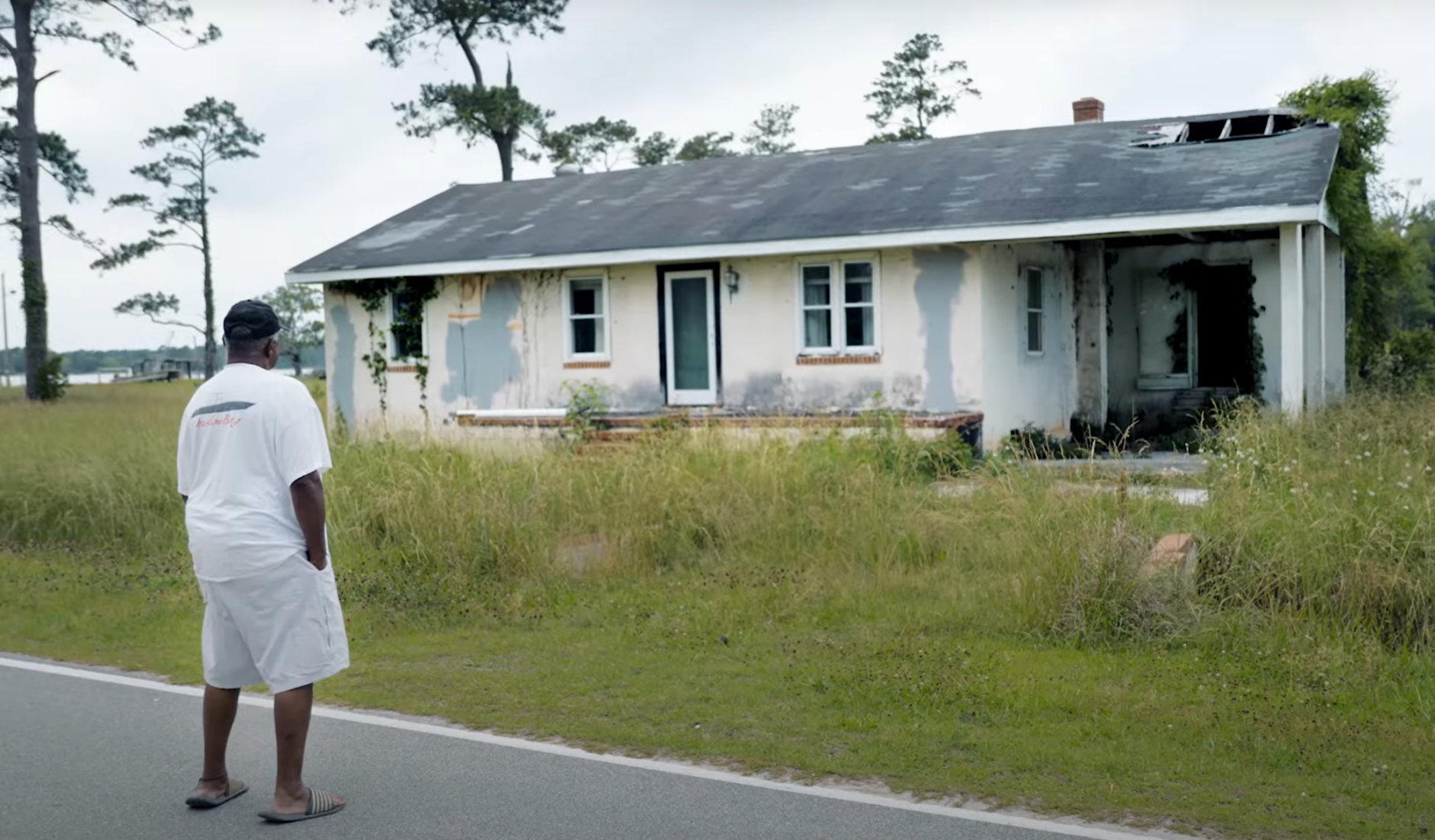This documentary by Raoul Peck (I Am Not Your Negro) covers a lot of ground and has several different angles. At one point, Peck's film reminded me of Margaret Brown's Descendant (2022), an exploration of a spot of land that had its origins with freed slaves who took ownership but are now threatened with things like gentrification or industry development. At another point, Peck's film reminded me of Garrett Bradley's Time (2020), an exploration of the effect on a Black family, specifically a Black woman, having to wait and suffer through a loved one's prison incarceration. Peck has found a story based on a ProPublica article by Lizzie Presser that combined Brown's work with Bradley's.
If anything, this film is a cautionary tale about the dangers of a legal process known as "heirs' property." Basically, it's what could happen if a property owner doesn't have a last Will-and-Testament, but does have multiple children or heirs. Property ownership can then become a messy and complicated bargain, which is exactly what happened in this film. Peck's documentary doesn't really get into the weeds about that legal process and the exact details of which. Peck doesn't really do much to help us understand why it's so messy and complicated. We're simply to accept that it is, but never grasping the intricacies. This is purposeful because arguably his interview subjects don't understand it, so we remain in their point-of-view, keeping us feeling as frustrated as them. This is an effective, empathetic, cinematic trick, but it's also a bit of a cop out in terms of turning a critical lens onto the interview subjects themselves.

Peck also frames his narrative as a David-versus-Goliath story where this one Black family is fighting what is likely a predominantly White company or organization. Not only does it make the story Biblical but also racial. That narrative would be undermined if their troubles were the result of their own doing, in terms of one family member in particular not having a Will-and-Testament and others not being in total solidarity. Yet, even if heirs' property weren't an issue, the other issue of gentrification would still be an important one to explore here.
Peck utilizes several drone shots to show the 60 acres of land in question. The land looks untouched and bears a strong resemblance to how it looked when it was when it was first bought over 100 years ago. Peck juxtaposes those shots with images of all the housing and waterfront development that surrounds the land in question. The housing and the waterfront look nice, but what comes with it is higher property values and specifically higher taxes and costs that would make the working-class, African Americans who live on those 60 acres impossible to continue living there.

Yes, Elijah Reels, a Black man born into slavery who became freed after the Civil War bought the 60 acres of land on the coast of North Carolina, along an area called Adams Creek, in 1911. Reels' family is the interview subjects here and that family has been living on that land ever since. The Reels' family has prospered as working-class people either doing farming or fishing. His family never made money any way else, as far as we're shown here, so they're all likely still working-class, basically skirting poverty. They couldn't afford to live in the new developments that now surround them, so holding onto their land is vital to a lot of them, presumably.
Starting in the late 70's, the Adams Creek Associates sued the Reels family, claiming ownership of a disputed chunk of the land due to the heirs' property problem. Eventually, two of the family members, Licurtis Reels and Melvin Davis fight that organization that wants to evict them. Licurtis and Melvin ignore eviction orders and the two get arrested for trespassing. The film then becomes about their imprisonment and dealing with the emotional and psychological toll that it has on the two men, as well as the family as a whole.

When it comes to that family, the documentary starts with Gertrude Reels, the 95-year-old grandmother who is the eldest member of the family. The toll on her is probably one of the greatest. Several of the family members are interviewed, but the most prominent is Kim Duhon, the granddaughter to Gertrude. She's the main storyteller in terms of the various steps in the legal process, as well as providing background as to what her childhood was like growing up in her little corner of Carolina.
We don't get much of her present life like what her current job is or how many children she has. In fact, when it comes to family members under the age of 30 or even 20, we don't get much perspective. The only exception is Nate Ellison who is the grandnephew of Melvin Davis, Gertrude's son. Ellison is a young fisherman, shrimper and crabber. He's identified in connection to Melvin Davis because they both work as commercial fishermen. It's an obvious connection that links past to present, but he feels like the only person who wants to do the family fishing business.

At one point, we see a group of little girls who are proud to claim ownership, but, in terms of how they see their lives going and how people the same age as Ellison want their occupations or vocations to be, there's no clue what they feel about what they want as their lives in the future. The assumption is that all of them are a monolith, which is unlikely, but, delving into that aspect would've required more time than this documentary has.
Rated PG for smoking and language.
Running Time: 1 hr. and 40 mins.
Available on Amazon Prime.











